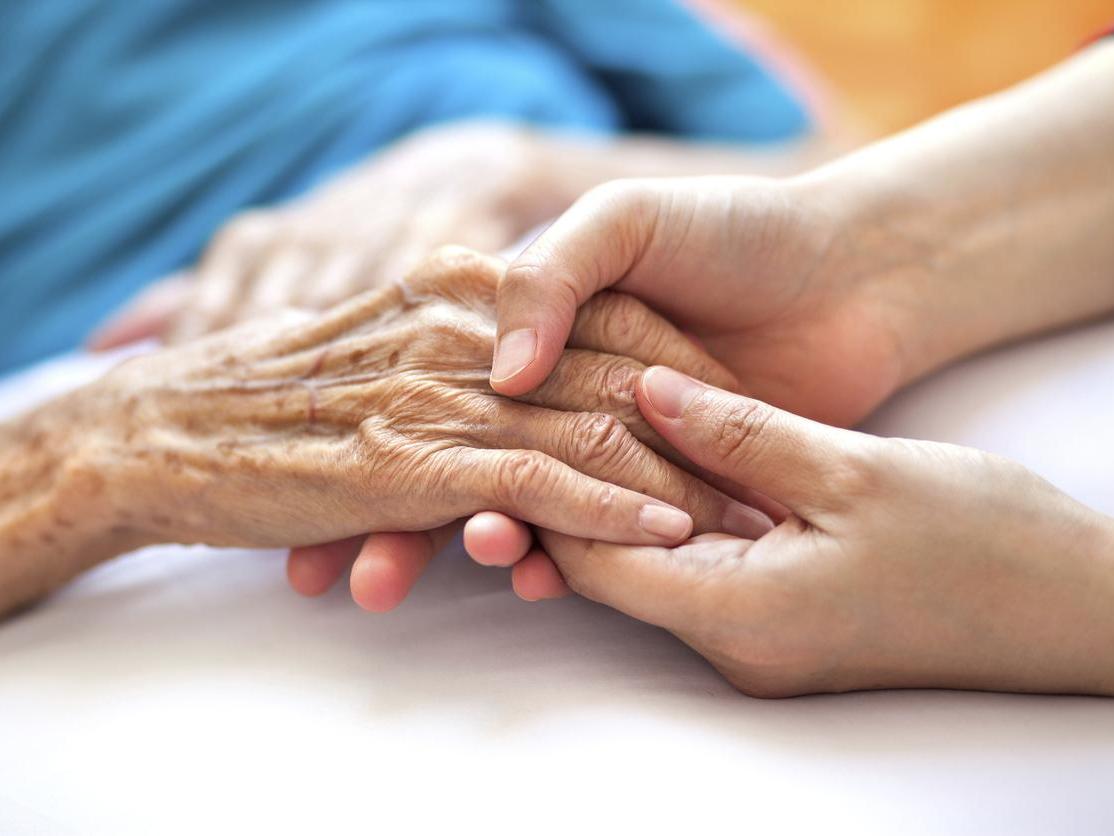Talking about death with those who are ill is sometimes the kindest thing we can do
If it is true that death and taxes are the only two certainties in life, it is astonishing how much we readily discuss the latter, but often shy away from the former

Your support helps us to tell the story
From reproductive rights to climate change to Big Tech, The Independent is on the ground when the story is developing. Whether it's investigating the financials of Elon Musk's pro-Trump PAC or producing our latest documentary, 'The A Word', which shines a light on the American women fighting for reproductive rights, we know how important it is to parse out the facts from the messaging.
At such a critical moment in US history, we need reporters on the ground. Your donation allows us to keep sending journalists to speak to both sides of the story.
The Independent is trusted by Americans across the entire political spectrum. And unlike many other quality news outlets, we choose not to lock Americans out of our reporting and analysis with paywalls. We believe quality journalism should be available to everyone, paid for by those who can afford it.
Your support makes all the difference.It is the ultimate question that many of us will have to face one day: do we want to be told that we are dying, or would we prefer to be kept in ignorance?
If it is true that death and taxes are the only two certainties in life, it is astonishing how much we readily discuss the latter, but often shy away from the former.
Perhaps even more surprising is that those professionally qualified to deal with death are equally tongue-tied. This has just been revealed in a Royal College of Physicians’s report, which says that doctors are reluctant to talk about death with patients.
This is a dereliction of duty. As a congregational minister who regularly has to visit those who are seriously ill, it is very clear that some patients would benefit from knowing they are nearing the end of their life
It might be that they wish to sort out their affairs – like Derek, who had never written a will but was prompted to do so by the thought of his demise; or Sandra, who had written one, but it was over 30 years old and needed radical changes.
Alternatively, thoughts of imminent departure can lead to important conversations, whether telling loved ones how much they mean to the person, or, as with Beatrice, contacting the sister with whom she had not spoken for 12 years, and effecting a reconciliation.
There are also many patients who simply want to know what will happen to them as their final days approach. They may be fearful, but it is often not so much of death itself, but of dying and the process that they will experience. Talking about it, and the pain relief on offer, can be very reassuring. It can also allow them time to contact organisations such as Compassion in Dying, which provides support for both them and their families.
Of course, doctors also need to know when not to discuss death, for there are patients who prefer not to be informed. If they wish to take the attitude that “ignorance is bliss” and clearly mean it, then why disturb that bliss?
One of my own relatives had a phobia about death. Whilst a long period of therapy might have uncovered his reasons and allayed his fears, telling him he was going to die a few days before the event, was not appropriate.
How do you know if a person really does or does not want to know the truth about their condition? It can be hard, as long-held views can change when confronted with the reality of death. Asking the patient directly but obliquely is one option, such as: “Is there anything you’d like to discuss or talk about?”, and letting them give a signal either way.
The new report begs the question of why many doctors have been so unwilling to tackle the issue until now. It could be lack of training – which should be rectified as a matter of urgency. It might be their own personal anxieties about death, which should also be addressed before qualifying.
Perhaps it is a worry that, if they do open up the subject with patients, then, unlike mentioning a prescription, it is a conversation that could take half an hour – time they do not have, yet which should be considered an important part of patient care.
There may also be the feeling that death is a failure on their part, seeing their job as to keep patients alive, and a reluctance to admit they cannot help any further. Although admirable, this is misguided, for death can be a natural outcome of a life long lived, or the inevitable consequence of the way it was lived.
It is good that doctors do not want to let patients down, but they may be inadvertently doing so by not talking about death.
Dr Jonathan Romain is rabbi of Maidenhead Synagogue
Join our commenting forum
Join thought-provoking conversations, follow other Independent readers and see their replies
Comments